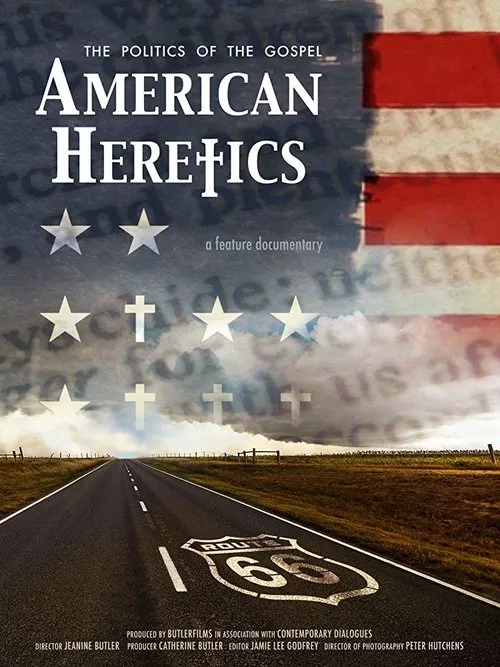American Heretics: The Politics of the Gospel

Plot
In the heart of the American South, a region commonly referred to as the Bible Belt, a silent revolution is unfolding. It's a movement that seeks to upend the centuries-old fundamentalist Christian dogma that has long been the backbone of the region's identity. At the forefront of this revolution are a group of courageous ministers, congregations, and community leaders who are daring to challenge the deeply ingrained teachings that have long been used to justify nationalism and discriminate against marginalized communities. The film American Heretics: The Politics of the Gospel is a powerful exploration of this movement, as it delves into the lives of those who refuse to adhere to the traditional and literal interpretations of the Bible. These individuals, once shunned and vilified as "heretics" by their own community, are boldly reimagining the Gospel message as one of inclusion, compassion, and social justice. At the center of the story is Rev. Welton Gaddy, a veteran minister and the founder of the Interfaith Alliance. With a lifetime of experience in the pulpit and a fierce commitment to social justice, Gaddy has emerged as a leader in the movement. He is flanked by a diverse group of allies, including Bishop John Borders, a charismatic leader from the African Methodist Episcopal Church, and Pastor Mike Morrell, a former fundamentalist who has found a new path through the Gospel. These individuals, along with their congregations and community leaders, are on the frontlines of a battle to reclaim the true spirit of Christianity. They believe that the Gospel message of love, forgiveness, and compassion has been hijacked by those who use it to justify hate, fear, and oppression. They are the embodiment of the "heretics" referred to in the film's title, and they are determined to challenge the status quo. Through interviews and vérité-style footage, the film captures the struggles and triumphs of this group of courageous individuals. They face intense resistance from those who cling to the traditional teachings, who view their message as a threat to the very fabric of their community. The film also explores the complexities of this movement, as those involved navigate the nuances of faith, identity, and power. One of the most compelling aspects of the film is its portrayal of the personal journeys of the individuals profiled. We see the transformation of Pastor Mike Morrell, who began as a fundamentalist but eventually came to realize that his teachings were rooted in a twisted and selective interpretation of the Bible. Similarly, we witness the courage of Rev. Amy Butler, who took on the daunting task of leading a predominantly white congregation towards a more inclusive and socially conscious path. The film also delves into the historical context of the Christian fundamentalist movement, highlighting the ways in which its teachings have been used to justify racism, sexism, homophobia, and nationalism. From the rise of the Ku Klux Klan to the modern-day Trump Era, the film illustrates how the Bible has been twisted to justify hate and division. Through it all, the film returns to the core message of the Gospel: a message of love, forgiveness, and compassion that has the power to transcend borders, cultures, and ideologies. The American Heretics interviewed in the film are not merely advocating for a change in policy; they are seeking to reimagine the very foundation of their faith. They believe that the Gospel is not a tool for division, but a source of unity, and that it demands a radical commitment to justice, equality, and human dignity. As the film draws to a close, we are left with a sense of hope and resilience. We see that even in the darkest corners of America, there are those who are determined to reclaim the Gospel message and to live out the principles of love, compassion, and justice. The American Heretics profiled in this film are beacons of light in the darkness, reminding us that even in the face of overwhelming opposition, we have the power to challenge the status quo and to create a more just, equitable, and compassionate world.
Reviews
Recommendations




